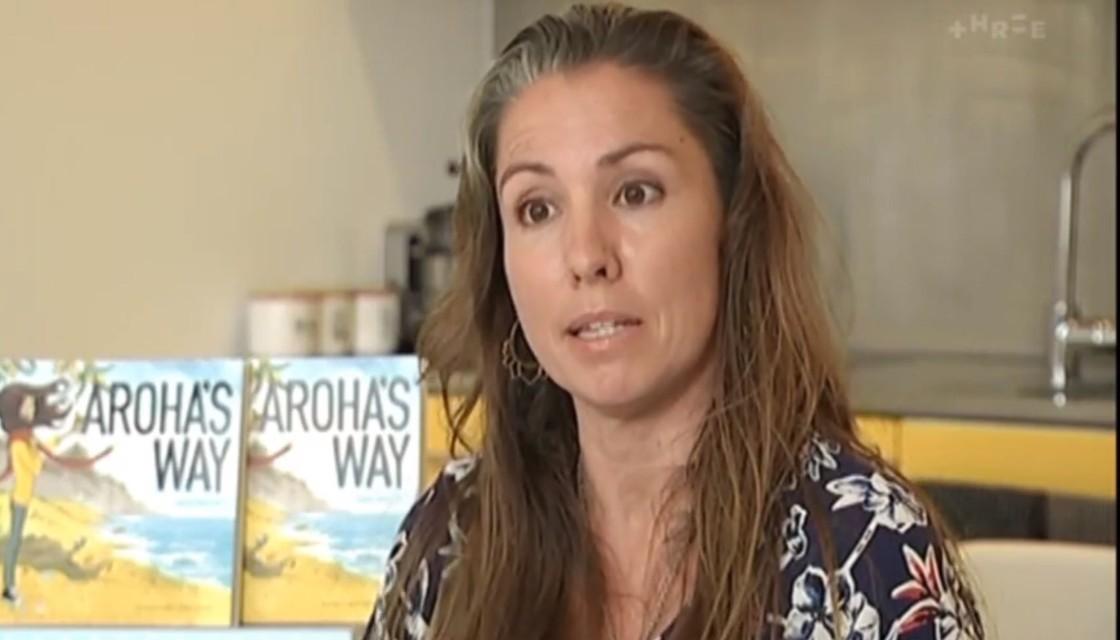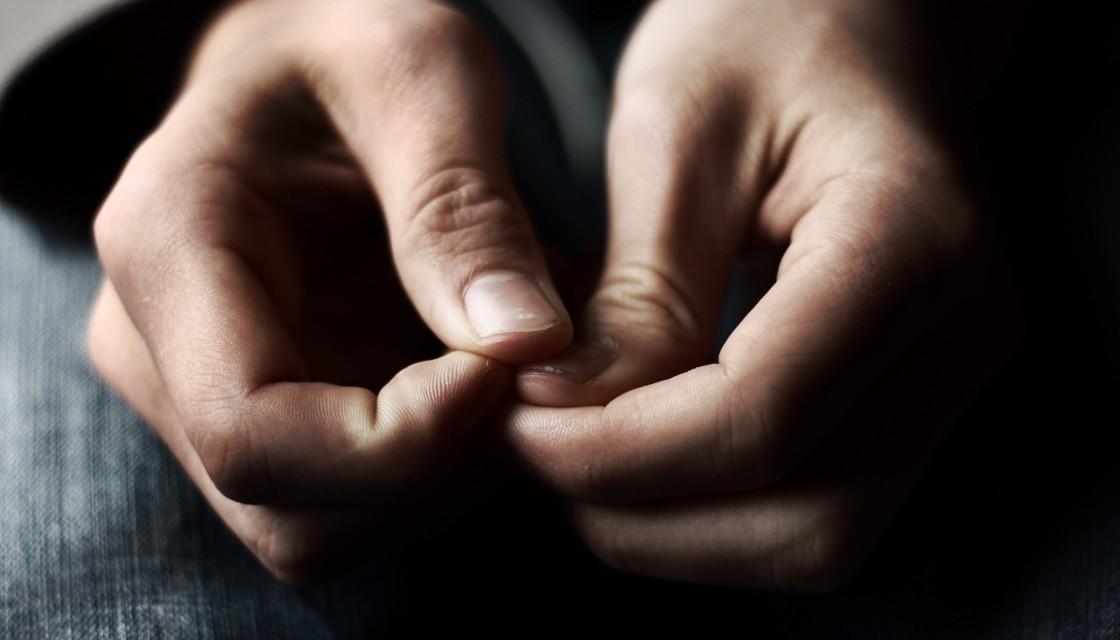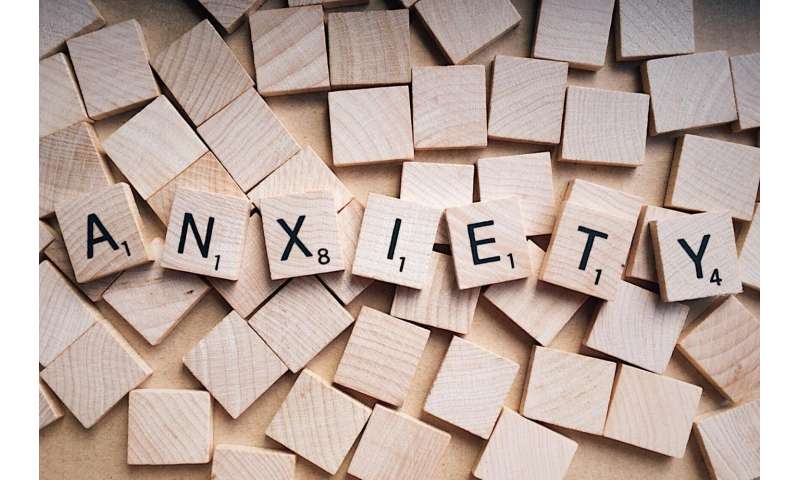This article deals with mental health problems, including attempted suicide.
Anxiety rates are increasing across all age groups, but despite popular opinion, millennials aren't solely to blame.
Numerous studies suggest millennials are more stressed and overworked than other generations.
That belief is so prolific that millennials - born between 1981 and 2000 - have been labelled The Burnout Generation.
Millennials do have a lot to worry about with climate change, financial stresses, and the constant pressures of social media. But every generation has had its struggles, from world wars to recessions older people also had to deal with anxiety and stress.
Over the past 10 years, the rates of anxiety have been steadily increasing across all age groups, according to the Ministry of Health.
But it turns out millennials aren't actually the generation with the worst anxiety.
Mental Health Foundation chief executive Shaun Robinson says generation X - born 1966 and 1980 - actually has higher levels of anxiety than all other generations.
"If we look at the Ministry of Health statistics, it would say that young people actually have slightly lower prevalence of anxiety than say middle-aged people, but not by a lot."
"We only start to see the pattern [of anxiety] lower in the 65 and 75 plus age groups,” he said.
"Pretty much all age groups are experiencing increasing levels of anxiety, but it's spread pretty evenly through the teenage years up to late middle age.”
"It [anxiety] is not exclusively a young person's problem, it's a problem that our whole community is facing."
Author Bex Lipp, 42, knows the debilitating effects of untreated anxiety all too well, after facing a huge amount of stigma while growing up.
She said for as long as she can remember she's had "big emotions", but her anxiety really kicked in when she was a teenager.

She said negative reactions caused her to hide her mental health struggles until it was almost too late.
"I didn't know about anxiety as a teenager, it wasn't something people talked about. The attitude was kind of harden up and don't cry. I learned quickly that I had to suppress what I was feeling. I just shoved things down, but they always end up coming out one way or another."
The lack of support saw Lipp's anxiety spiral out of control and by 16 years old, she was suicidal.
Somehow she managed to scrape through her teen years, but by her twenties, her life was completely out of control.
The lack of support saw Lipp's anxiety spiral out of control
"I only left the house to go to my therapy appointments a few times a week. When I was driving, I would think people were yelling at me.”
“It was really hard and back then, I was on the crazy train and I just didn’t want to tell anyone. My parents were really worried about what would happen to me."
Eventually, Lipp’s anxiety got so back that she ended up in a mental health facility.

"I was self-harming every day. I was hurting myself to take myself out of my brain, to be in physical pain instead of emotional. It was like a warped sense of mindfulness."
"It was like having a wound that never heals and then goes septic. I was lucky back then, they [the Taylor Centre] helped me save my life."
Anxiety disorders are very common in New Zealand, affecting more than 200,000 people (6.1 percent).
Rates of anxiety are significantly higher in women (7.7 percent) than men (4.4 percent), according to the Mental Health Foundation.
And Generation X isn’t the only generation dealing with an increase in anxiety.
While millennials might not be the disaster generation they're portrayed as, they are still experiencing increasing anxiety levels.
And while there is more awareness, many millennials still struggle to get the help they need.
- How to cope with climate anxiety and despair
- The same scaremongering tactics use by any dooms dayer
- New Zealand depression website exposed test results to third-party companies
Millennial Holly* has had anxiety since she was 10 years old. Despite growing up in the 2000s, she still struggled with stigma surrounding mental health.
Holly first realised something was wrong when she started experiencing panic attacks and struggles eating.
The panic attacks were so severe she thought she had a physical illness.
"With the most recent panic attack, I didn't realise I was having one until I was in the thick of it. I couldn't catch my breath and I had this overwhelming feeling that everything was too much. My heart was racing and I started balling my eyes out."
To make matters worse, her parents who didn't want her to go to counselling or tell anyone about what she was going through.
"In terms of trying to help me themselves my parents were always really great, but as soon as I said I wanted to go to counselling they were like, 'why?'."
Holly said she ended up avoiding counselling for several years because her parents were so uncomfortable with it. When she finally started going, her parents told her they "hated that she was telling someone else her problems".
She said her parents never wanted to hear about her sessions and when if she did tell them anything they would become defensive and upset.
"They thought it made it look like they couldn't do their job as parents when in reality they were doing the perfect thing because they were emotionally invested, they just couldn't give me the guidance I needed."
"I know for a fact my mum never wanted anyone to know about my anxiety. She just didn't want anyone to think the family was struggling."
Why young people get a bad reputation
Shaun Robinson said millennials' struggles with anxiety dominates headlines because people panic when younger generations are facing adversity.
"I think there is always a bit of a panic around young people when there is an issue affecting them, and anxiety definitely does," he said.
"It is true to say that more young people are experiencing anxiety than they were 10 years ago, but the reality is that it's also fair to say that there are more 45 to 55 year olds experiencing anxiety as well."
"We tend to get into a sense of panic whenever there is a significant issue for young people because people are concerned that these are the future leaders. They have to take our society forward, so what does it mean if more of them are anxious? I think that concern plays into the way youth issues get blown up.”
However, he said we need to make sure we don't have the perception that being young causes anxiety.
"There are different pressures on different age groups for different reasons. So young people have their own issues, but it's not a youth disaster. This is an issue that is affecting the whole population."
Why are we so anxious?
The answer isn't as straightforward as it may seem and it's hard to pinpoint exactly what's to blame.
Shaun Robinson said climate change, poverty, inequality, job instability and technological advances all play a part and often affect younger people more than others.
However, he said those same changes also affect generation X who are raising children in a time of “rapid change”.
“We have rapid changes in technology and that flows through to changes in jobs and job prospects.”
Climate change is also a cause of anxiety with eco-anxiety supports groups appearing and an increase in people self-reporting anxiety based on fear over the planet.
Young people specifically are reportedly feeling hopeless, overwhelmed and stressed about the potentially disastrous effects of climate change.
"I doubt that there is a young person that is not acutely aware that [climate change] is an issue that is going to affect their lives very significantly," Robinson said.
While social media can connect people, it can also make people feel isolated and not good enough,
Social media has also contributed by increasing the pressure to live the "perfect life", he said.
Robinson said people only show their best selves online, which can make people compare themselves and lead to them not feeling good enough.
While social media can connect people, it can also make people feel isolated and not good enough, he said.
"The way mental health issues and issues in general are talked about in social media and entertainment...that's now a global phenomena and young people in New Zealand are not isolated from them."
He said social media can cause young people to focus more on perceived popularity, than genuine connection.
Robinson said the reducing stigma will also mean people of all ages are more willing to seek help.
The flow-on effect from that will be an increase in people seeking help and, therefore, an increase in people being diagnosed with anxiety.
"It's probably impossible to tell how much is that and how much is actually an increase in levels of anxiety,” Robinson said.
He said it's good if people are getting help early and are able to recover and treat any mental health issue.
"High rates [of anxiety] are not necessarily a disaster. They may be a sign of reducing the stigma and increasing the level of help available. However, we can't say that is the total explanation."
There is hope.
Through therapy, both Lipp and Holly are now able to manage their anxiety better.
Lipp says she has learned the early warning signs for when she is feeling anxious or about to have a panic attack and has methods to help her feel better.
For Holly, she still has good and bad days but is now better equipped to deal with the bad days. She said her parents are also more accepting of her going to counselling after seeing the positive impact it has had on her quality of life.
Where to find help and support:
-
Shine (domestic violence) - 0508 744 633
-
Women's Refuge - 0800 733 843 (0800 REFUGE)
-
Need to Talk? - Call or text 1737
-
What's Up - 0800 WHATS UP (0800 942 8787)
-
Lifeline - 0800 543 354 or (09) 5222 999 within Auckland
-
Youthline - 0800 376 633, text 234, email This email address is being protected from spambots. You need JavaScript enabled to view it. or online chat
-
Samaritans - 0800 726 666
-
Depression Helpline - 0800 111 757
-
Suicide Crisis Helpline - 0508 828 865 (0508 TAUTOKO)






